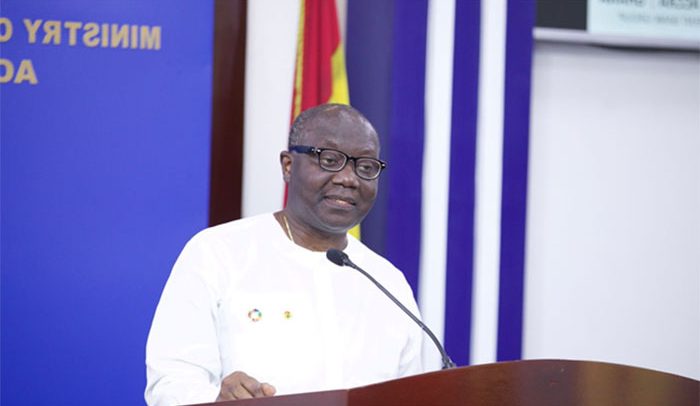Ken Ofori-Atta
PARLIAMENT ON Thursday passed the Fees and Charges (Miscellaneous Provisions) Bill, 2022, to provide for an annual adjustment of fees and charges levied by Ministries, Departments and Agencies (MDAs).
The bill, which forms part of revenue measures outlined in the 2022 budget, seeks to establish a single schedule for all fees and charges for goods and services rendered to MDAs and provide for an annual adjustment of the fees and charges in line with prevailing economic conditions.
The legislation will give a legal backing to the request for a 15% upward adjustment of fees and charges by public institutions when assented to by the President.
Deputy Finance Minister, Abena Osei Asare, who read the bill for the third time, had earlier indicated that the passage would enable the MDAs to ensure that the cost of fees and charges keep up with trends in pricing by replacing the Fees and Charges (Miscellaneous Provisions) Act, 2018 (Act 983).
The Act 983 transferred the authority to determine fees and charges under an enactment to the Minister responsible for Finance as well as mandates MDAs to conduct an annual review of the administrative efficiency of collection, the accuracy of past estimates and the relevance of fees and charges to current economic conditions.
Also, the Public Financial Management Regulations, 2019 (LI 2378) directs a Principal Spending Officer responsible for collecting various types of fees and charges to conduct an annual review of the administrative efficiency of past estimates and the relevance of rates, fees and charges and submit proposals through the Ministry responsible for Finance to Parliament for approval.
Chairman of the Finance Committee, Kwaku Agyeman Kwarteng, called on the Minister of Finance to speed up the process to open the holding accounts for all agencies to prevent the practice of direct payment and disbursement of revenues from the collection accounts for operational purposes.
“The Committee, therefore, recommends that the Ministry of Finance should take immediate steps to ensure that all institutions captured in the Second Schedule of the Bill collect their revenues through a designated commercial bank or through the Ghana.gov platform from which the funds collected are transferred in gross into the respective holding accounts at Bank of Ghana,” he stressed.
According to him, the committee observed that microbusiness and petty traders did not require regulatory permits to carry on with the activities, including the supply.
It suggested that a toilet roll supplier, for instance, does not need a permit at a fee from the National Communications Authority before it could supply to telecommunication companies.
“Thus, the fees and charges collected by the MDAs for delivery of goods and services to the public have to be adjusted on a regular basis to keep pace with the current economic trends,” he read the report.
He, however, indicated that compliance with Act 983 and LI 2378 leaves much to be desired, hence, the adjustment.
BY Ernest Kofi Adu, Parliament House


